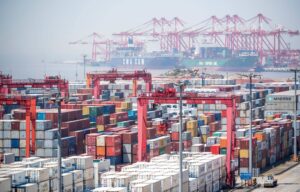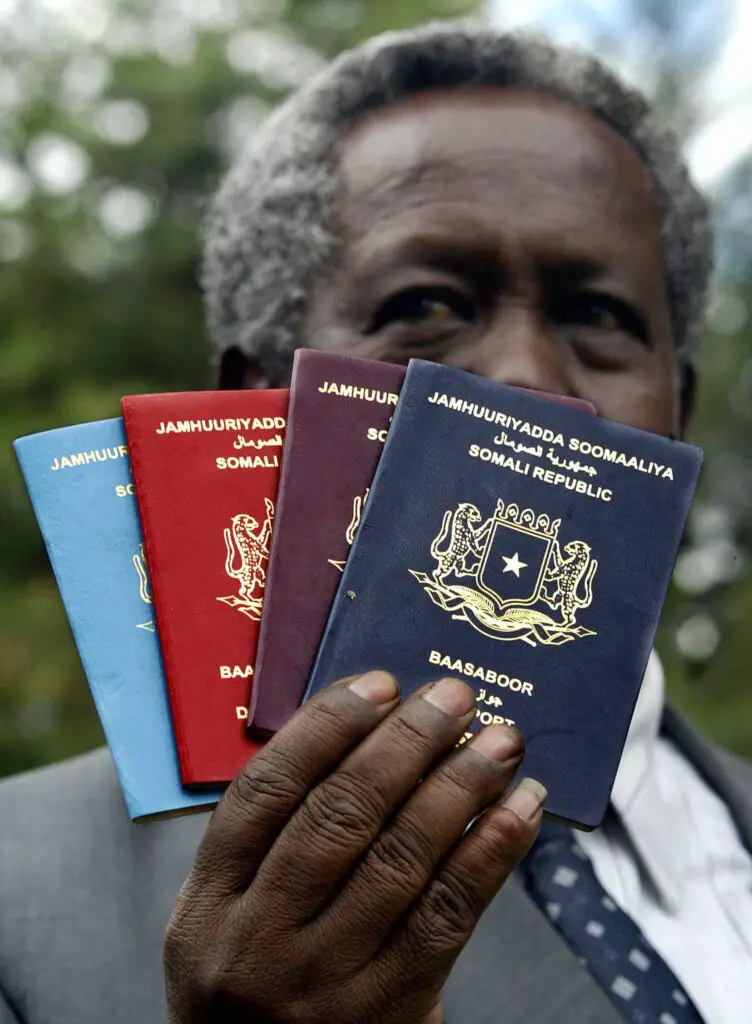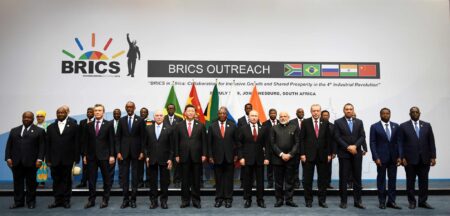- Region economic communities such as East African Community (EAC) are opening doors for citizens to expand their hands across various economic opportunities.
- The movement of people over space and time is the bloodline of the modern world’s economies.
- South Africa, Africa’s highest ranked passport, was position 54 globally with South Africans having visa-free access to 106 nations.
A recent World Economic Forum (WEF) report revealed that an American passport holder can access 43 percent of the global GDP without a visa while a United Arab Emirates (UAE) passport gives access to 70 percent of the global GDP.
In contrast, the Nigerian (top African economy) passport holder can access 20 percent of the world, equivalent to 1.5 percent of the global GDP. The measure of access is a wake-up call on assessing strategies and measures regarding the movement of people over space and time in Africa.
Since the launch of the first electronic passport, the “African Union Diplomatic Passport” in Kigali, Rwanda, which was issued to heads of state and senior officials – Africa has been on the move more than ever.
Region economic communities such as East African Community (EAC) are opening doors for citizens to expand their hands across various economic opportunities. Citizens from Kenya, Tanzania, the Democratic Republic of Congo (DRC) and Burundi move visa-free across the bloc.
Africa is striving to remove barriers that limit the free movement of people and goods over space and time. The African Union’s (AU) Agenda 2063 flagship project, “The African Passport and Free Movement” of People, aims to remove restrictions on African’s ability to travel, work and live within their own continent.
More importantly, the AU noted that the initiative aims at transforming Africa’s laws, which remain generally restrictive on the movement of people despite political commitments to bring down borders with the view to promoting the issuance of visas by Member States to enhance the free movement of all African citizens in all African countries.
Over the past decades, nations with the strongest passports (with the ability to travel to many nations without a prior visa), such as the United States of America (USA), Singapore and Switzerland, to mention a few, have figured out that passports represent freedom.
Earlier this year, the World Economic Forum (WEF) released a comprehensive report on the most powerful passports in the world – holding the most visa-free access to the world. The list is based on the 2023 Henley Passport Index.
Japan stood in the first place (5th year in a row), with 193 nations granting access to their citizens visa-free. Meanwhile, South Korea and Singapore tied in second place with 192 countries and Germany, and Spain picked up third place, holding 190 nations.
South Africa, Africa’s highest ranked passport, was position 54 globally with South Africans having visa-free access to 106 nations. Other African nations followed through were Bostwana (62/86), Namibia 66/78, and Lesotho 67/77.
In East Africa, Kenya and Tanzania followed each other at 71/72 and 72/71, respectively. Practically, Africa needs to put into practice the travelling potential to use and enhance the travel industry as Africans still face hardship in obtaining a passport.
READ:Era of the African Passport: A mixed bag of opportunities?
Why travelling matters
The movement of people over space and time is the bloodline of the modern world’s economies. New opportunities are open for those willing and able enough to move freely and strategically.
The index inked the correlation between passport strength and access to the global economy. Africa is a witness to the stark increase of other African nationals spreading their presence across competitive economies in the region.
Tanzania is now home to Nigerian, Kenyan and DRCs citizens moving freely between the nations, spreading vast opportunities.
The same is observed with foreign persons from China ranked 64/81 paying attention to the region’s vast economic opportunities across real estate, agriculture and merchandise.
It is now a norm for young people to travel across the region and beyond for economic and skill-gaining opportunities despite economic restrictions.
Henley and Partners study reveals that just 6 percent of passports worldwide give their holders visa-free access to more than 70 percent of the global economy. And only 17 percent of countries give their passport holders visa-free access to more than four-fifths of the world’s 227 destinations, which is plenty of reasons for Africa to streamline the African Union Passport.
The African Union Passport is essential
With the current state of affairs, Africans are yet to explore the heights of potential within their borders worth $3.4 trillion. Hence, the African Union Passport is essential for putting Africa at the right stage.
READ: Namibia and Botswana remove a barrier to freedom of movement, abolish the use of passports
Despite the underlying biometric technological systems disparities and citizen registration risk of strengthening terror groups and organized crime and visa revenue dependency for some African nations, the continent can capitalize on strict strategies that oversee centralized records, compensation for loss visa revenue to bring the latter onboard.
The AU finds free movement of persons in Africa to deliver significant impacts to the economy at large. But also, travelling boost intra-Africa trade, social integration, commerce and tourism.
A 2016 report by the African Development Bank (AfDB) advised that easing entrance requirements would support economic growth, citing the case of Rwanda, which saw GDP and tourism revenues soar after removing visas.
It is, without a doubt, the AU Passport stand to benefit Africa greatly. There are more opportunities with an expanded and unrestricted movement of goods and people across Africa than the risky attempts to cross the Mediterranean to Europe in search of greener pastures.
The passport can support the region to do away with dependence on western goods and services and compel Africans to collaborate, share resources, and tech-know-how in developing and sustaining new opportunities.
Africa holds plenty of potential to become a more robust economy that commands respect across the international community – thus, the AU passport will open up Africans to the world economy.











